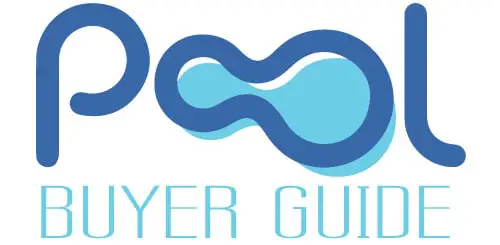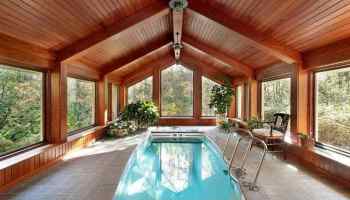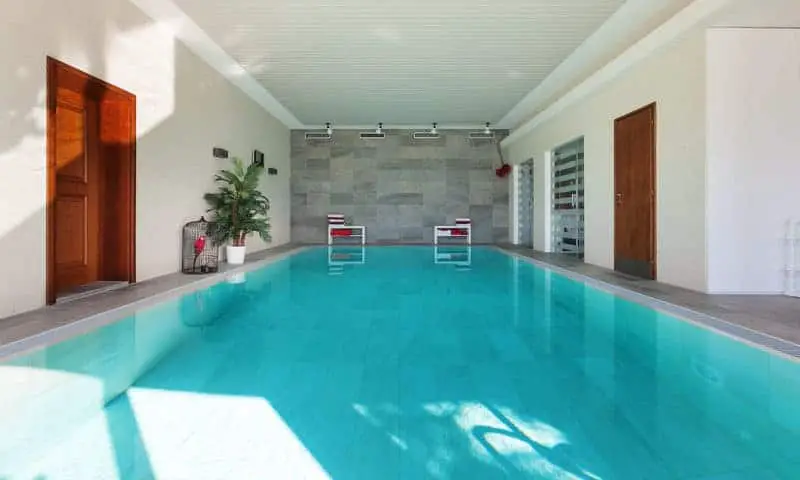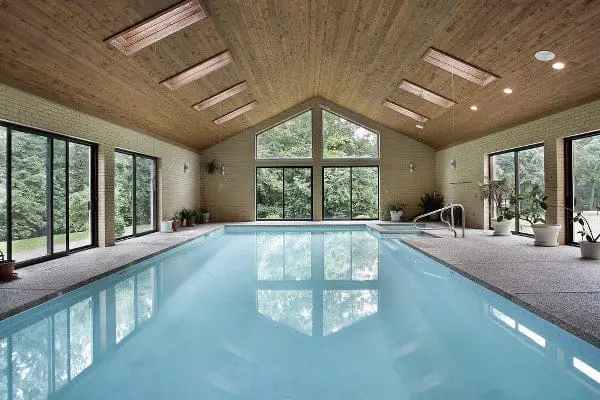
People may think and believe that a swimming pool is just something luxurious or lavish. Well, swimming pools are a lot deeper than that. A swimming pool is a fantastic addition to your property and your lifestyle. Not just a recreation activity, swimming is also one of the best forms of personal exercise.
Owning a pool is a combination of an investment for relaxation of the mind and investment for a stronger and healthier body. A swimming pool with sparkling crystal clear water in a quiet area away from the loud environment outside, a perfect ambiance to unwind your body and mind.
As the most popular summertime attraction, it isn’t uncommon in a neighborhood lined with residential swimming pools. The rise of a residential swimming pool as a backyard amenities become a pop.
Before, indoor swimming pools are only be seen in a hotel or a sports compound. But as time goes by, homeowners bring the luxury feeling of an indoor swimming pool as part of their house.
The main attraction of a residential indoor swimming pool is that it isn’t weather dependant in any way. In the heat of the ray of sun or the snow is falling in the middle of the night, you can just dive in and swim freely in your indoor swimming pool.
Today, we will further discuss everything you need to know about Residential Indoor Swimming Pools.
Why Do I Want Residential Indoor Swimming Pool?
Any Season and Year-round Swimming. Basically, swimming pools are just big basins of water, but, when you think of it, there are a lot of advantages to a residential indoor swimming pool. First and foremost, when you think of summer and it is scorching hot outside and all you want to do is to dip in the pool that is when your own residential indoor swimming pool becomes a great investment. It gives you enjoyment and relaxation in the convenience of your own home 24/7, 365 days a year, all year round without worrying about the weather or change in season.
Privacy and Relaxation. If one of your purpose of having a swimming pool is to exercise and relax, an indoor swimming pool is an advantage. You have more privacy during leisurely swimming or for your aquatic exercises. You can control the water temperature if you want it warm or cold for a more relaxing feeling. Eliminate having a fuss with leaves, dirt or other kinds of debris floating with the wind. Unwind with the calmly sound of the pool water without the annoying noise outside the environment.
Security and Lower cost of maintenance. A residential indoor swimming pool provides security from insects, debris, and unwanted animals into your swimming pool. It is not a fun sighting if we find one of them in the pool. Getting away dirt and debris guarantees your filter smooth operations and decreases the frequency of maintenance. There is never much to clean out and your pool cleaning system will work better. The pool chemicals also prolong its effects because there is no direct sunlight that diminishes its quality performance means a lesser chemical application saving up pool chemicals. It also secured the pool from unwanted swimming that may cause drowning or accidents, you won’t have to worry about kids climbing a safety fence or animal pets accessing the pool when no one is around.
Nevertheless, indoor pools are really a great but huge investment in construction costs. Another downside is the possible high energy cost with additional pool accessories needed.
Best Materials For Residential Indoor Swimming Pools
There are basically three options for indoor swimming pool; concrete, fiberglass and vinyl liner. Concrete made pools are the most flexible in three choices. You can make a concrete pool as big as you want. It allows highly customizable in shape and size. It extremely durable and can be integrated with other pool features easily. The concrete pool has the most construction cost, needs more effort to maintain, a rough interior and more chemical usage.
Vinyl liner pools are highly customizable in shape with a lower initial cost. It has a smooth to touch surface and its composition inhibits algae growth. The biggest disadvantage of a vinyl liner pool is its maintenance cost because it requires regular replacement of the liner.
The easiest to maintain and with almost no maintenance cost is the fiberglass pool. It can be installed easily and you will save from reducing the swimming pool installation cost. The fiberglass material is an aesthetically beautiful design itself with extreme durability because of the scientific development done with this material. It has a smooth to touch
Gelcoat surface with built-in the controlled climate that eliminates the need for costly regular refinishing. Installation is at ease because the pool shell can be built off-site. It is incredibly efficient because it is non-porous that prevents algae from embedding into the surface. Fiberglass pools have less maintenance and repair expenses over a period of time. Because of the composition of fiberglass, it has a limited shape and designs to offer and a higher initial investment cost.
These three types of pool will work in a residential pool application. It is better to consider the size of the structure the pool will build, the initial purchase price of the pool to be constructed and its lifetime cost including its maintenance needed.
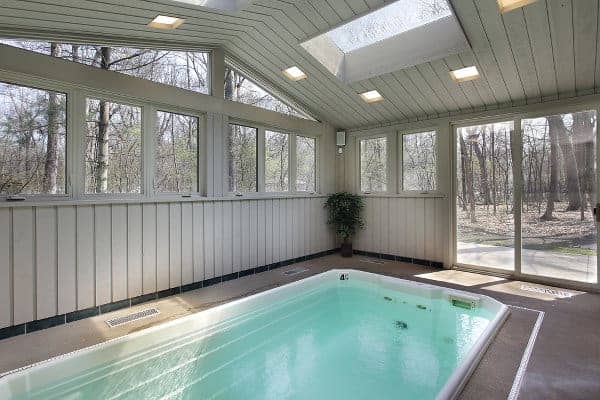
Accessories To Be Consider For An Indoor Pool
Pool Heater. With the absence or with a little ray of sunlight, an indoor pool requires a device to heat up the pool water. Some pools used natural gas or propane heater as a traditional type of pool heater.
Pool Dehumidification. It is used in cooling air until the excess moisture is a force to condense out of the air. It also improves the indoor climate, air quality. and lower the apparent temperature.
Automatic Pool Covers. Controlling moisture is essential for the long use of any pool structure. Auto covers virtually eliminate evaporation that keeps the water in the pool instead of in the air.
Indoor Pool Exhaust and Ventilation. It helps to stay comfortable while out of the water by a good supply of fresh air and continuously exhaust pool chemical dust.
Vapor Barrier. This barrier is installed in the wall of your indoor pool to keep the moisture and vapors away from the rest of your home. It also prevents molds formation in walls and ceilings.
Door Alarm. You may consider installing door alarm to each door access to notify unauthorize entry to the pool area and a safeguard for children swimming unattended.
The Cost of Installing a Residential Indoor Pool
A residential indoor swimming pool is a huge investment for a homeowner. As a luxury investment, it equally provides a cozy feeling swimming in your own indoor pool. The cost for an indoor pool starts at around 200,000 dollars and up based on the pool size, design, and the materials to be used in the construction. Building the pool structure may cost you up to 100 dollars per square foot. A regular-sized swimming pool itself will normally cost from 40,000 dollars up to 60,000 dollars depending on the pool type.
Additional accessories like dehumidification system, pool heater and ventilation may cost up to 35,000 dollars for a complete set of indoor pool accessories. Finding a contractor that understands your plan and your vision in constructing your dream indoor swimming pool makes a difference in the costing. There is no exact amount for the cost because it differs based on your location and the availability of materials needed. Additional electrical works and plumbing re-routing will add to the initial cost.
Related Questions about Residential Indoor Pools
Do indoor pools need to be heated?
The residential indoor swimming pool has the advantage of not being exposed to the weather conditions outdoor. However, heating indoor pools do create three needs. The pool room must be dehumidified using the dehumidifier device, the winter room air must be heated and the pool water must be heated to maintain pool temperature as well as keeping the room dry.
How do you take care of your residential indoor pool?
Proper ventilation is one of the key ways to ensure your indoor pool clean and safe. Same as an outdoor pool, regular chlorine application is needed at least once a week. Ventilation regulates the temperature that prevents trapping moisture and condensation causing molds build-up. Running the pool filter 8 to 12 hours a day may help the pool cleaner. Vacuum the pool as often as possible to prevent algae formation.
What type of indoor swimming pool is the easiest to maintain?
The fiberglass pool requires less maintenance. The smooth, non-porous surface of a fiberglass pool makes it difficult for algae formation. Fiberglass also resists corrosion so it is excellent for the sanitation system. Unlike other pool types, it requires few repairs which are quick and easy. Fiberglass can flex in response to impacts or contractions of the soil surrounding it makes it very durable. The long life and greater energy efficiency making the fiberglass a smart choice for indoor pool type.
Even though a residential indoor swimming pool is generally more expensive, the luxury experience it can give is surely a great return of investment feels. That way, more and more residential indoor swimming pool is constructed for a fun and relaxing swimming bonding in their own home.
